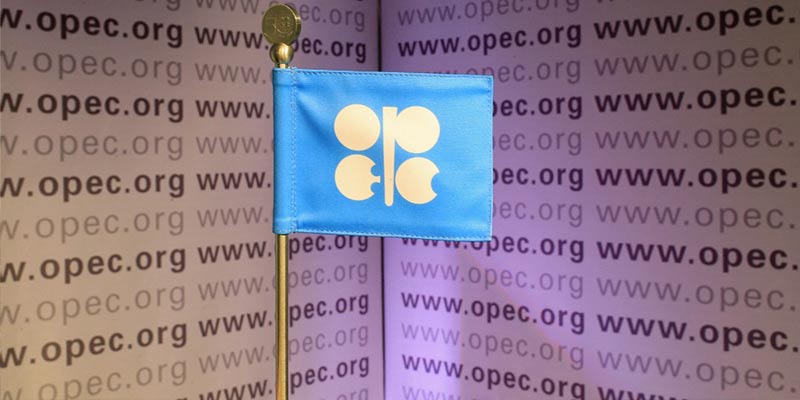- World
- Feb 05
OPEC+ plans to gradually raise oil output from April
• OPEC+ has agreed to stick to its policy of gradually raising oil output from April.
• The meeting coincided with a rise in oil prices after US President Donald Trump imposed tariffs on Mexico, Canada and China — America’s top trading partners — raising concern about supply disruption.
• OPEC+ is cutting output by 5.85 million barrels per day (bpd), equal to about 5.7 per cent of global supply, agreed in a series of steps since 2022. In December, OPEC+ extended its latest layer of cuts through the first quarter of 2025, pushing back a plan to begin raising output to April.
What is OPEC?
• Crude oil production by the Organisation of the Petroleum Exporting Countries (OPEC) is an important factor that affects oil prices. This organisation seeks to actively manage oil production in its member countries by setting production targets. Historically, crude oil prices have seen increases in times when OPEC production targets are reduced.
• OPEC member countries produce about 40 per cent of the world’s crude oil. Equally important to global prices, OPEC’s oil exports represent about 60 per cent of the total petroleum traded internationally.
• Because of this market share, OPEC’s actions can, and do, influence international oil prices. In particular, indications of changes in crude oil production from Saudi Arabia, OPEC’s largest producer, frequently affect oil prices.
Origin of OPEC
• The OPEC is a permanent, inter-governmental organisation, created at the Baghdad Conference in September 1960 by Iran, Iraq, Kuwait, Saudi Arabia and Venezuela.
• OPEC’s formation occurred at a time of transition in the international economic and political landscape, with extensive decolonisation and the birth of many new independent countries in the developing world.
• The international oil market was dominated by the “Seven Sisters” multinational companies and was largely separate from that of the former Soviet Union and other centrally planned economies.
• OPEC developed its collective vision, set up its objectives and established its Secretariat. It adopted a ‘Declaratory Statement of Petroleum Policy in Member Countries’ in 1968, which emphasised the inalienable right of all countries to exercise permanent sovereignty over their natural resources in the interest of their national development.
• The statute stipulates that “any country with a substantial net export of crude petroleum, which has fundamentally similar interests to those of the member countries, may become a full member, if accepted by a majority of three-fourths of full members, including the concurring votes of all founder members”.
• Currently, the organisation has a total of 12 member countries. They are: Algeria, Congo, Equatorial Guinea, Gabon, Iran, Iraq, Kuwait, Libya, Nigeria, Saudi Arabia, UAE and Venezuela.
• OPEC had its headquarters in Geneva in the first five years of its existence. This was moved to Vienna in Austria on September 1, 1965.
• OPEC regularly meets to set oil production targets and coordinate output to help manage global oil prices for the entire group.
OPEC’s objectives are to coordinate and unify petroleum policies among member countries, in order to:
i) Secure fair and stable prices for petroleum producers.
ii) Ensure an efficient, economic and regular supply of petroleum to consuming nations.
iii) Secure a fair return on capital to those investing in the industry.
What is OPEC+?
• OPEC+ is a group of oil-producing nations, made up of the members of the OPEC, and 10 other non-OPEC members.
• The non-OPEC members are: Azerbaijan, Bahrain, Brunei, Kazakhstan, Malaysia, Mexico, Oman, Russia, Sudan, South Sudan.
• The OPEC bloc is nominally led by Saudi Arabia, the group’s largest oil producer, while Russia is the biggest player among the non-OPEC countries.
• The format was born in 2017 with a deal to coordinate oil production among the countries in a bid to stabilise prices. Since then, the group has reached deals for members to voluntarily cut and ramp-up production in response to changes in global oil prices.
• The OPEC and OPEC+ countries combined produce about 60 per cent of global oil production.
Manorama Yearbook app is now available on Google Play Store and iOS App Store


